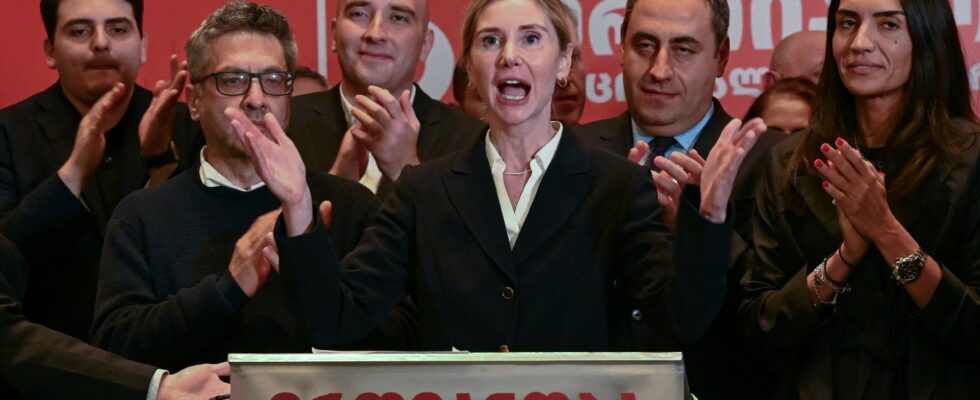In Georgia, this Saturday, October 26 evening, both camps are claiming victory in legislative elections that are crucial for the future of the country. “European Georgia wins with 52%, despite attempts to rig the election,” said President Salomé Zourabichvili, breaking with the Georgian Dream government, accused of pro-Russian authoritarian drift by the opposition. But according to the pro-government channel Imedi, it was the Georgian Dream, a party led by billionaire Bidzina Ivanishvili, which won with 56.1% of the vote, compared to 35.2% for the pro-European coalition. Hungarian Prime Minister Viktor Orbán, the only leader of the European Union who remains close to Moscow, also welcomed the “overwhelming” victory of the ruling party.
Another institute, another result. According to an Edison Research poll, carried out for a television channel favorable to the opposition, victory would go to the four pro-European parties, who agreed to form a coalition. They would total 51.9% of the votes, compared to 40.9% for the ruling party. “Georgian dream has lost, the Georgian people and Europe have won,” said Tina Bokutchava, head of the United National Movement, one of the four parties in the opposition coalition, and which is that of the former imprisoned president Mikheïl Saakashvili, sworn enemy of Bidzina Ivanishvili.
Brussels warned that the outcome of these elections would depend on the chances of entering the EU of this former Soviet republic in the Caucasus of around four million inhabitants, which has included this aspiration in its Constitution. After voting, Salomé Zourabichvili warned that this vote would “determine the future of the country”.
Risk of trouble
Monitored by international observers, the vote was marked by several incidents, widely reported online. A video of a fight at a polling station in Tbilisi prompted the president to call on the interior minister to act. Clashes also took place at the headquarters of the United National Movement. Images appearing to show ballot stuffing in Sadakhlo, a village in the east, were widely shared by the opposition. The election commission canceled the ballots in this office.
Tina Bokoutchava accused the “thugs” of the Georgian Dream of “clinging to power” and “undermining the electoral process”, comments rejected by this party. Gela Vasadze, an expert from the Center for Strategic Analysis on Georgia, warned of a risk of “post-election unrest” if “the ruling party tries to stay there whatever the result.” In the event of victory, the opposition alliance promised electoral and judicial reforms and the repeal of criticized laws promulgated recently. She plans to form a coalition government and then organize a new election within a year to better reflect the will of voters.
The Georgian Dream, in power since 2012, is accused of having engaged in a spiral towards a pro-Russian authoritarian regime and of distancing Georgia from the European Union and NATO, which it also aims to join. Some of its leaders are very critical of the West. Bidzina Ivanishvili called it a “global war party,” which would treat Georgia, its victim, as “cannon fodder.” The Georgian Dream campaigned by presenting itself as the only one capable of preventing a supposed “Ukrainization” of Georgia.
